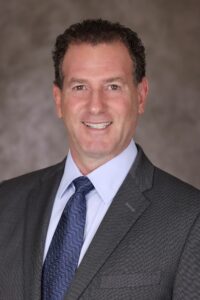BLOG
 The firm’s Gary M. Mars was the first South Florida community association attorney to weigh in on the recently proposed SAFER in Condos Act in a major local media outlet with his article in today’s op-ed page of the Miami Herald. The article, which is titled “After Surfside, Federal Condo-Safety Legislation Deserves Bi-Partisan Support,” focuses on the SAFER in Condos Act that was recently introduced in the U.S. Congress by Florida representatives. It notes that questions regarding condominium safety have been in the spotlight since the horrific Champlain Towers tragedy that claimed 98 lives, and changes failed to pass in the state legislature but have been enacted at the federal level from lenders and also at the local level from counties and municipalities. Gary’s article reads:
The firm’s Gary M. Mars was the first South Florida community association attorney to weigh in on the recently proposed SAFER in Condos Act in a major local media outlet with his article in today’s op-ed page of the Miami Herald. The article, which is titled “After Surfside, Federal Condo-Safety Legislation Deserves Bi-Partisan Support,” focuses on the SAFER in Condos Act that was recently introduced in the U.S. Congress by Florida representatives. It notes that questions regarding condominium safety have been in the spotlight since the horrific Champlain Towers tragedy that claimed 98 lives, and changes failed to pass in the state legislature but have been enacted at the federal level from lenders and also at the local level from counties and municipalities. Gary’s article reads:
. . . Part of the reason the state legislature could not agree on a set of reforms was because the new funding requirements for structural repairs would have been too much for the unit owners of many condominium communities to bear. Plus, financing options for both condominium associations and their unit owners for such extremely costly property restorations were getting worse by the day, as interest rates have been on the rise and are predicted to continue climbing.
For a problem of this magnitude and national scope, only the federal government has the capability and resources to truly make an impact. Its first effort at addressing it was proposed on April 18 by U.S. Reps. Charlie Crist (D-St. Petersburg) and Debbie Wasserman Schultz (D-Broward, Miami-Dade) in the form of the Securing Access to Finance Exterior Repairs (SAFER) in Condos Act of 2022. The legislation would allow condominium owners to finance critical building repairs with loans backed by the Federal Housing Administration (FHA). Unit owners would be able to combine a special assessment from their association for structural repairs with their existing mortgage debt into a new, 30-year loan insured under the FHA home rehabilitation program.
For those who do not have a mortgage or would prefer to leave it as is and continue to pay it off, the legislation also grants owners access to the FHA Property Improvement Program to finance such an assessment over a 20-year term.
Such loans would provide realistic options for many condo owners to be able afford the large assessments that are sometimes necessary to raise significant funds for major structural and life-safety repairs.
Another measure that the U.S. Congress should consider would be a financing program, either through the FHA or the Small Business Administration, for federally backed low-interest loans for condominium associations through participating lenders. Community associations qualified for post-pandemic relief loans through the SBA, and by sponsoring such loans for structural improvements, the federal government would be providing insurance to lenders against any defaults from small, not-for-profit corporations that exist for the sole purpose of helping condo communities survive and thrive.
For very large structural improvement projects, such loans would enable associations to secure low interest rates in order to help make their endeavors as affordable as possible for their unit owners, who would then have the option of deferring their payments through the new FHA financing options proposed under the SAFER in Condos Act.
As condominium associations and local municipal building departments continue to increase their inspections and scrutiny of building structural and life-safety elements, major projects to help bolster condominium towers are sure to become more prevalent. Government-backed financing programs for both condominium associations as well as their individual unit owners for major structural-improvement projects would promote public safety and help to avoid potential catastrophes, thereby serving an immense public good that merits full government support. . .
Gary concludes his article by noting that in today’s polarized political environment, it will be essential for lawmakers from both sides of the aisle to co-sponsor this legislation in order for it to gain the bi-partisan support it will probably need for passage. He writes that the Community Associations Institute, the leading organization representing the interests of community associations, is working to get 98 members of Congress to co-sponsor the legislation in honor of the 98 victims of the collapse, and notes that it and our firm are asking everyone to contact their U.S. representative and encourage them to co-sponsor and support the bill.
Our firm salutes Gary for sharing his input on this potentially momentous new federal condo-safety legislation with the readers of the Miami Herald. Click here to read the complete article in the newspaper’s website.

